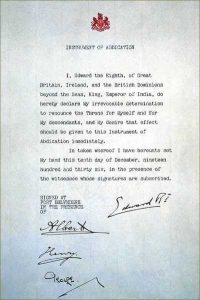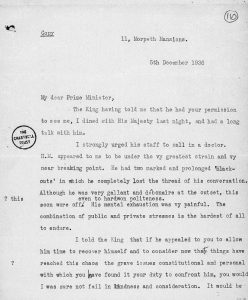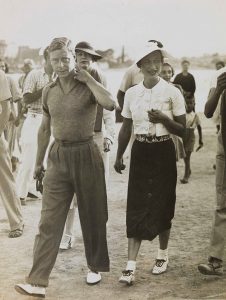
StoryElement
Churchill’s views

Winston Churchill, Parliament Square, London © Sue Lowry & Magellan PR
January 1, 1970
Against mounting pressure from the government, parliament and the establishment for the king to abdicate, Churchill sided with the king, hoping perhaps that the king would give up his intentions, that Mrs Wallis would fall from favour or that she would just quietly disappear from the scene.
Churchill saw the monarchy as a key part of Britain’s historic identity and felt abdication would irrevocably damage the British monarchy at a time when it needed strength most. Churchill had backed the wrong horse – or cause. He was shocked and horrified to find himself shouted down in the House of Commons when he spoke in support of the king on 7 December, meaning he had to abandon his speech. His opponents thought he was trying to topple the government, hoping perhaps that Baldwin would have to resign if the king didn’t heed his advice.
In the event, it was Churchill who was silenced. The king did indeed abdicate, on 11 December, much to Churchill’s distress and regret. He now felt more isolated and discredited than ever before and many now felt his career was ruined beyond redemption. In a speech a few days later, however, he couldn’t resist a final warning.
Churchill’s role in the Abdication Crisis was portrayed in a new light, in the film The King’s Speech. Here, Churchill, as portrayed by the actor Timothy Spall, is shown clearly supporting the abdication of Edward VIII, in favour of George VI. Perhaps this was an attempt by Hollywood to restore Churchill to the right side of history … For views on how Churchill is portrayed in the film, see here. For historian Andrew Roberts’ review of the film, see here.

2024 International Churchill Conference
For a BBC timeline on the Abdication Crisis, click here, and for learning resources from IWM, click here.
Subscribe
WANT MORE?
Get the Churchill Bulletin delivered to your inbox once a month.




